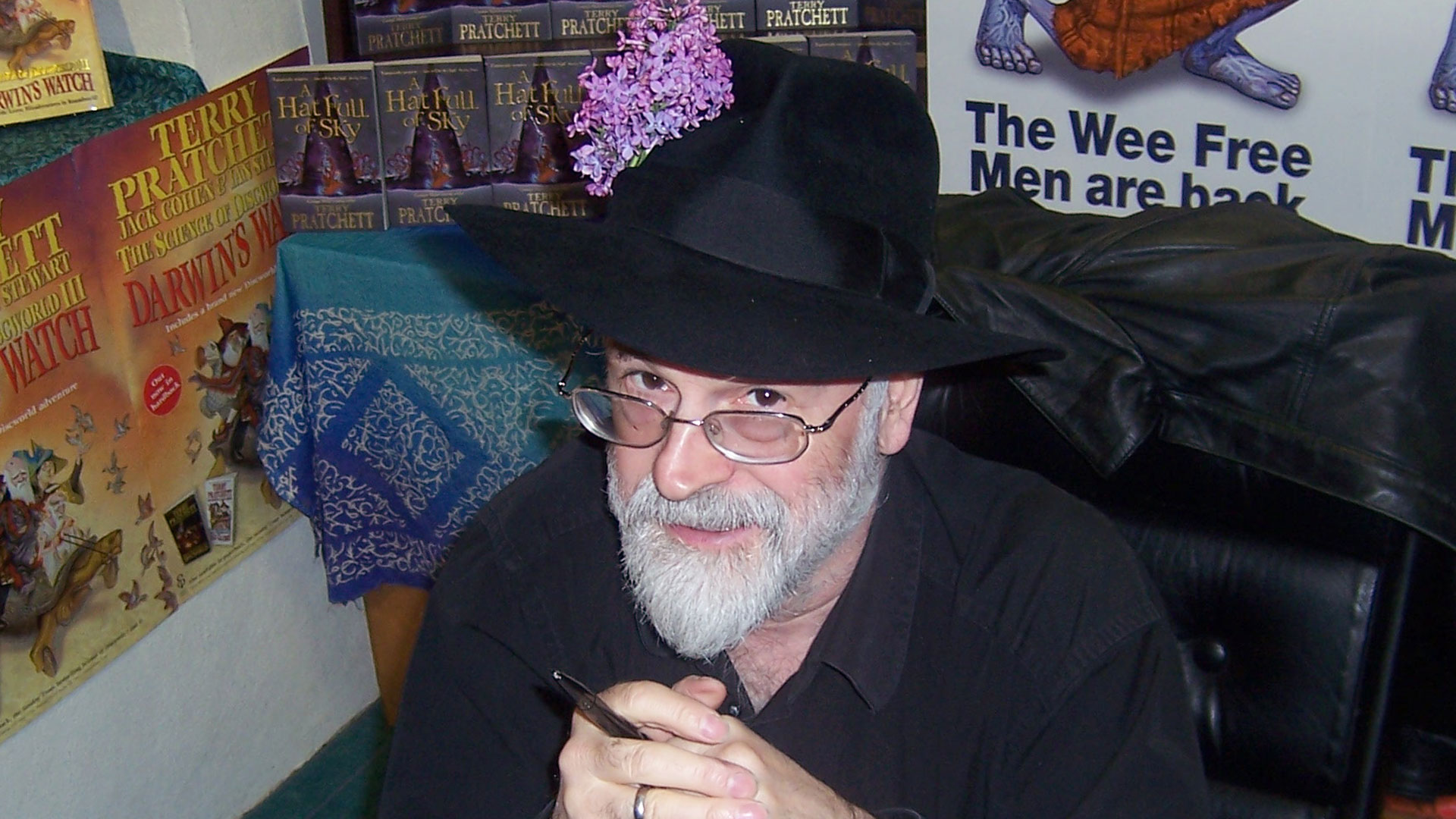Another day, another argument about a classic children’s author being censored due to outdated language in their work. This weekend the Telegraph ran a story about libraries in Devon storing unedited versions of Enid Blyton’s original books, with their lashings of “dark-skinned strangers” and foreign crooks, out of the public eye.* Whenever these stories pop up I always have the same thought: thank the gods for Terry Pratchett, an author unlikely to be cancelled or revised unless language itself twists and turns out of his control as the years go by.
Pratchett’s work is nuanced in a way few other authors can get close to. And deceptively so – while some can’t see past the wizards and goblins, or the daft jokes, puns and parodies, anyone who takes the time to look will find that Pratchett’s books are a masterclass in – as one of his most famous characters, Granny Weatherwax, put it – “not seeing people as things”. Just because those people happen to be orcs or talking rats or foul-mouthed Celtish Smurfs, it doesn’t mean that they’re not also, fundamentally, people. And that’s as true of Pratchett’s children’s books as it is of his more adult Discworld series.
It’s something Enid Blyton (who incidentally lived in Pratchett’s hometown of Beaconsfield in Buckinghamshire) never gets right. Blyton’s books define people based on single characteristics – they are boys or girls, or in the case of the Famous Five’s George, a “tomboy”, (a characteristic it’s assumed she’ll grow out of) and those roles are ironclad. They have no wiggle room. Even worse are those antagonists whose entire personality is “foreigner” or “black”. Blyton seals her characters in concrete. They can’t escape her baked-in views of them.
Terry Pratchett, writing for the same age group, rarely does this.** Truckers and its sequels, Pratchett’s children’s trilogy about “nomes” living a secret life under the floorboards of a department store, is specifically about characters trying to burst out of the restriction placed around them. It’s a story about people being told that the world works this way, and realising that actually it can work that way. The nome’s lives are dictated by religion, gender and class. The three books are about those characters seeing the vastness of the universe and the possibilities it contains for all of them.
Get the latest news and insight into how the Big Issue magazine is made by signing up for the Inside Big Issue newsletter
It’s a theme that stretches across Terry Pratchett’s entire body of work: the conventions of the story say you must conform, but what if you don’t want to? That story could be societal, where men, women and talking rats must stick to their lanes, or it could be more literal – you behave in certain ways because that’s what the story is telling you to do. He’s brilliant at that sort of thing.









